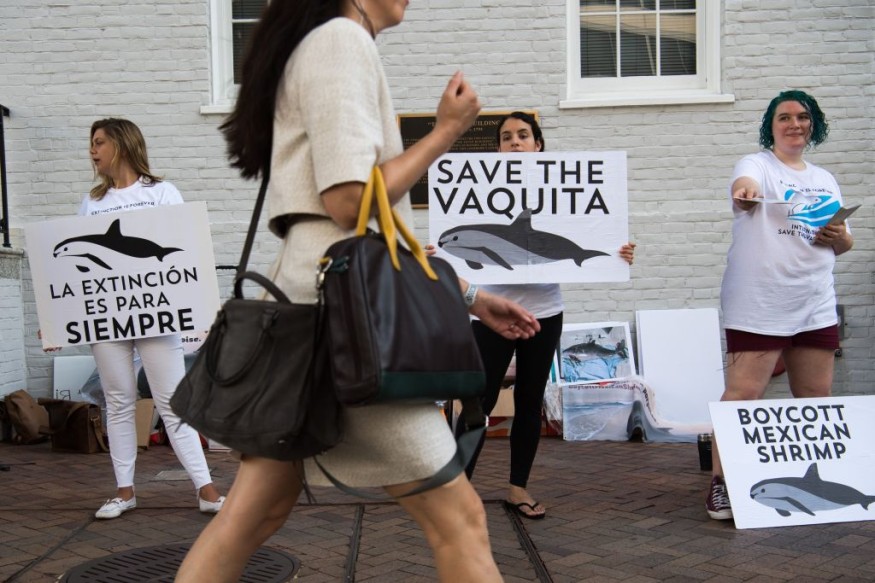Mexican Navy Helping Protect Endangered Vaquita Marina Porpoises

Illegal gill nets have killed millions of marine life around the world, from sharks to dolphins to sea turtles. In the Gulf of California, this has caused problems as these illegal gill nets are also killing several endangered vaquita marina porpoises. Now, the Mexican navy is doing something about saving these tiny and elusive aquatic mammals.
The vaquitas are very rare. The Associated Press noted that as few as eight of them live in the Gulf of California. This is the only place they can live in, and they cannot be captured and bred in captivity.
Mexican Navy Plans to Drop Concrete Blocks and Set Hooks to Snag Nets
The Mexican government has set a 288-square-kilometer "zero tolerance" area near San Felipe, Baja California where the vaquitas are found. However, the government has largely given up on this, as fishermen in small vessels still set their gill nets in an effort to illegally catch a fish known as the totoaba, which is popular in China as its swim bladder is considered a delicacy in the country.
These nets are often hundreds of meters long, and many of them become abandoned to become ghost nets, which continue to kill sea life as they drift across the sea. The Mexican navy plans to set hooks on concrete blocks and just drop them in the ocean.
The plan is to sink 193 of these hooked blocks. However, the plan was approved without public comment, and environmentalists have voiced their concerns. According to environmentalists, the metal hooks may accumulate nets, but as the nets are still in the ocean, they may still trap and kill sea life.
The Center for Biological Diversity's Mexico Representative Alex Olivera argued that this might be a double-edged sword. He also argued that it is not clear whether these snagged nets would be recovered or not. If they are not recovered, the larger ones could become ghost nets and continue killing animals.
Another expert who asked to remain anonymous said the plan may discourage fishermen from casting their nets in the "Zero Tolerance Area." However, the expert also said it would be crucial for the navy to regularly clear out the nets.
Vaquita Marina Porpoises Are the Rarest Marine Mammal on Earth
The vaquita is not only the world's smallest cetacean but also the rarest marine mammal on the planet, according to the World Wildlife Fund (WWF). Its name means "little cow" in Spanish and is only found in the northern tip of the Gulf of California, part of the Sea of Cortez.
According to porpoise.org, it is the only species of its family found in warm waters. It numbered about 600 individuals in 1997, but due to illegal gill nets and other factors, it has declined to less than 20. There was also a 90% decline in the species between 2011 and 2016 alone.
Fishermen with gill nets remain their biggest threat, as they have largely ignored government warnings and the "Zero Tolerance Zone." The totoaba that the fishermen are fishing for is now also endangered because of heavy demand for their swim bladders in China, according to ABC News. Fishermen have also actively fought against efforts by Mexican authorities.
READ NEXT : Mexico Is Ending Daylight Saving Time
This article is owned by Latin Post.
Written by: Rick Martin
WATCH: The race to save the last of the Vaquita l Nightline - ABC News
Subscribe to Latin Post!
Sign up for our free newsletter for the Latest coverage!
















